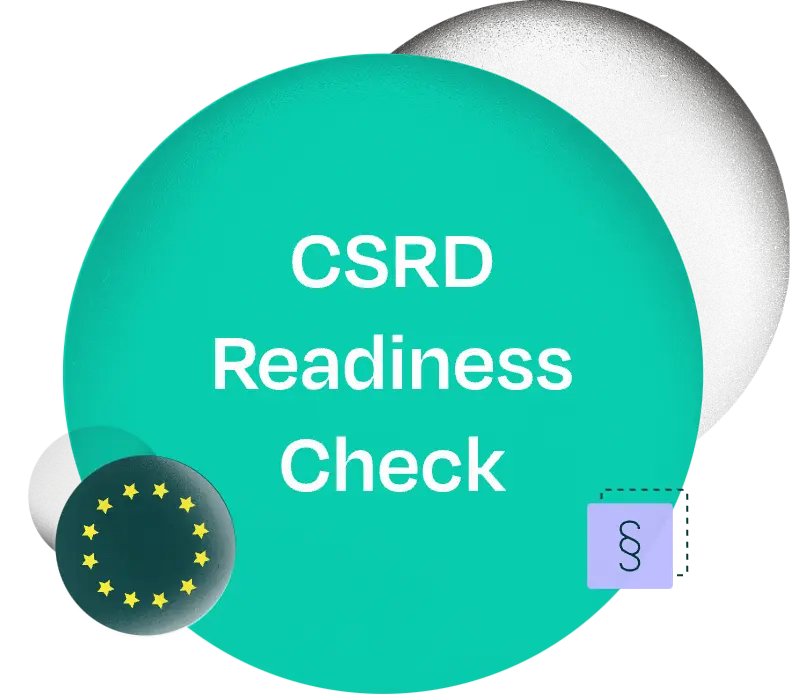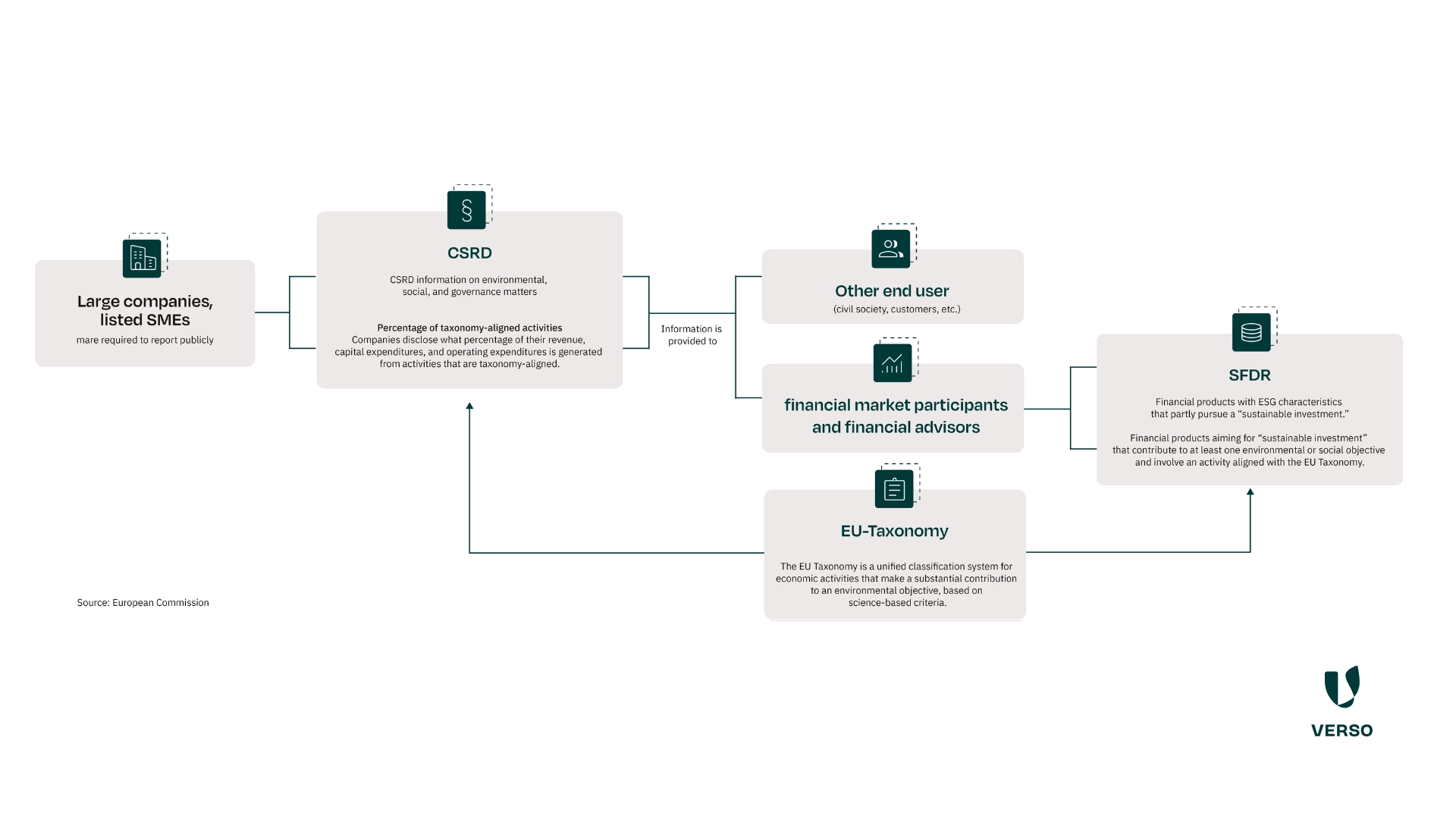eady for CSRD reporting? VERSO guides you step by step
Starting in 2024, the Corporate Sustainability Reporting Directive (CSRD) is set to be introduced. Alongside strict regulatory requirements, the CSRD reporting obligation raises many questions: Does it apply to my company? What needs to be done? And how can I ensure compliant implementation? VERSO helps you find the answers—simple, pragmatic, and effective.



What is the CSRD?
As one of the three pillars of the European Green Deal, the CSRD reporting obligation requires European companies to report on their sustainability performance. It replaces the previous EU directive NFRD and Germany’s CSR-RUG.
Starting in 2024, the new directive will apply to over 50,000 companies across the EU—15,000 of them in Germany alone. Under certain conditions, non-EU companies and suppliers of CSRD-reporting companies are also affected.
VERSO supports you with specialized software and comprehensive consulting to help you create a legally compliant sustainability report and achieve ESG compliance with ease.

Which companies are subject to CSRD reporting – and when?
The CSRD came into effect in 2023 and will apply from 2025 to all companies previously subject to reporting under the NFRD or Germany’s CSR-RUG.
Starting in 2026, the reporting obligation will extend to medium and large companies that meet at least two of the following criteria:
- > 250 employees
- > 25 million € in total assets
- > 50 million € in net revenue
Under the Omnibus Directive, the reporting obligation has been postponed by one year for the following types of companies:
- Listed small and medium-sized enterprises (SMEs)
- Small, non-complex credit institutions
- Captive (re)insurance companies
These entities must now report for the 2026 fiscal year, with submission in 2027. Micro-enterprises are exempt if they do not exceed €450,000 in total assets, €900,000 in net revenue, or 10 employees.
In 2029, the CSRD will also apply to non-EU companies generating more than €150 million in net revenue within the EU and operating a branch or at least one subsidiary in the EU. These companies will need to report on their 2028 fiscal year.

Does the CSRD apply to you?
Not sure when your company needs to comply with CSRD reporting?
Take our free CSRD Readiness Check!
In just a few minutes, you’ll receive a personalized assessment and concrete recommendations by email.

Learn more about how it all connects on our blog!
What does “double materiality” mean in the context of the CSRD?
With the CSRD reporting obligation comes a new understanding of materiality. Specifically, relevant topics for the sustainability report must now be identified based on the principle of “double materiality“. This means companies are required to report both on the impact their business activities have on people and the environment, and on how sustainability-related issues affect their business.
Double materiality replaces the previous rule, under which companies only had to report if both aspects were material. Our experienced sustainability experts are here to support you with the materiality assessment and throughout the entire reporting process.
How can I meaningfully combine my management and sustainability reports?
With the introduction of the CSRD reporting obligation, management and sustainability reports are closely intertwined. VERSO provides you not only with audited management and sustainability reports from a single source but also integrates both into one comprehensive report that meets all legal requirements—for maximum transparency of your sustainability efforts.







